Local Plumbers – Georgetown, TX

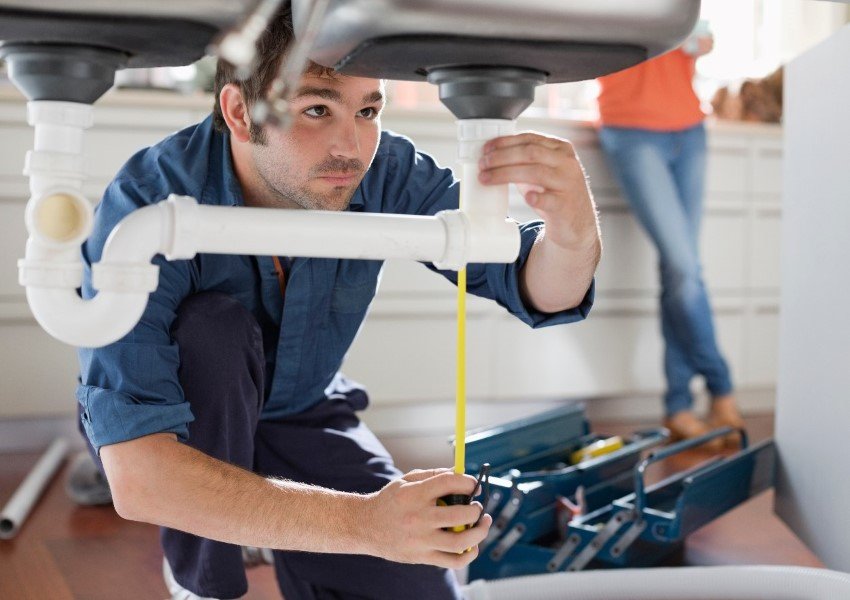
CALL US NOW (512) 316-0246
How Local Plumbers Combine Modern Innovation with Time-Honored Techniques
In the ever-evolving field of plumbing, local plumbers near me are finding innovative ways to blend cutting-edge technology with traditional craftsmanship to deliver exceptional service to their communities. This topic explores how local plumbers close to me leverage modern innovations while honoring time-honored techniques, striking a balance between innovation and tradition. Here’s a structured approach to delve into this fascinating subject:
1. Introduction to the Plumbing Industry:
– Provide an overview of the plumbing profession, highlighting its historical significance and evolution over time.
– Emphasize the importance of craftsmanship, reliability, and expertise in traditional plumbing practices.
2. Emergence of Modern Technologies in Plumbing:
– Discuss the impact of technological advancements on the plumbing industry, such as the introduction of high-tech tools, equipment, and materials.
– Highlight the role of innovations like trenchless technology, video inspection cameras, and IoT devices in revolutionizing plumbing practices.
3. Preservation of Traditional Skills and Techniques:
– Explore the value of traditional plumbing skills and techniques passed down through generations of plumbers.
– Discuss the importance of craftsmanship, attention to detail, and problem-solving abilities in traditional plumbing practices.
4. Integration of Modern Tools and Equipment:
– Examine how local plumbers incorporate modern tools and equipment into their traditional workflows.
– Highlight the use of power tools, electronic leak detection devices, and pipe relining technologies to enhance efficiency and precision.
5. Training and Education:
– Discuss the importance of ongoing training and education for local plumbers to stay abreast of the latest technologies and techniques.
– Explore how plumbing apprenticeships, vocational programs, and continuing education courses bridge the gap between tradition and innovation.
6. Customer Communication and Transparency:
– Highlight the role of technology in improving customer communication and transparency in plumbing services.
– Discuss how local plumbers leverage digital platforms, such as websites, social media, and mobile apps, to provide real-time updates, estimates, and appointment scheduling.
7. Adaptation to Changing Customer Needs:
– Explore how local plumbers adapt their services to meet the evolving needs and preferences of modern customers.
– Discuss the demand for eco-friendly solutions, smart home integration, and preventive maintenance programs in today’s plumbing market.
8. Sustainability and Environmental Responsibility:
– Address the importance of sustainability and environmental responsibility in modern plumbing practices.
– Discuss how local plumbers incorporate green technologies, water-saving fixtures, and eco-friendly materials into their service offerings.
9. Community Engagement and Reputation Building:
– Highlight the role of community engagement and reputation building in the success of local plumbing businesses.
– Discuss how local plumbers leverage technology to foster relationships with customers, build trust, and establish themselves as reliable service providers.
10. Future Outlook and Innovation:
– Predict future trends and innovations in the intersection of technology and tradition in the plumbing industry.
– Explore emerging technologies, such as AI-driven diagnostics, 3D printing, and robotic-assisted repairs, and their potential impact on local plumbing practices.
By examining “The Intersection of Technology and Tradition” in this structured manner, this topic provides insights into how local plumbers embrace innovation while staying true to the time-honored techniques that have defined their craft for generations.
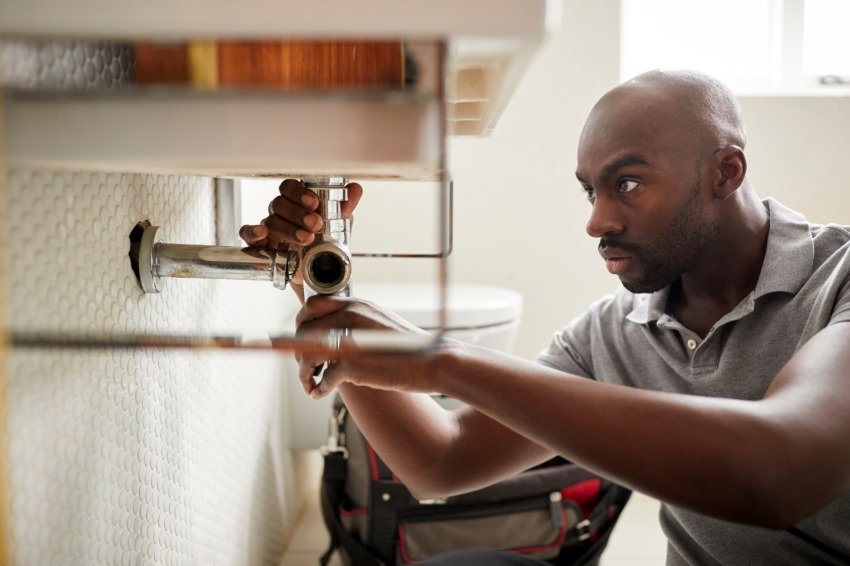
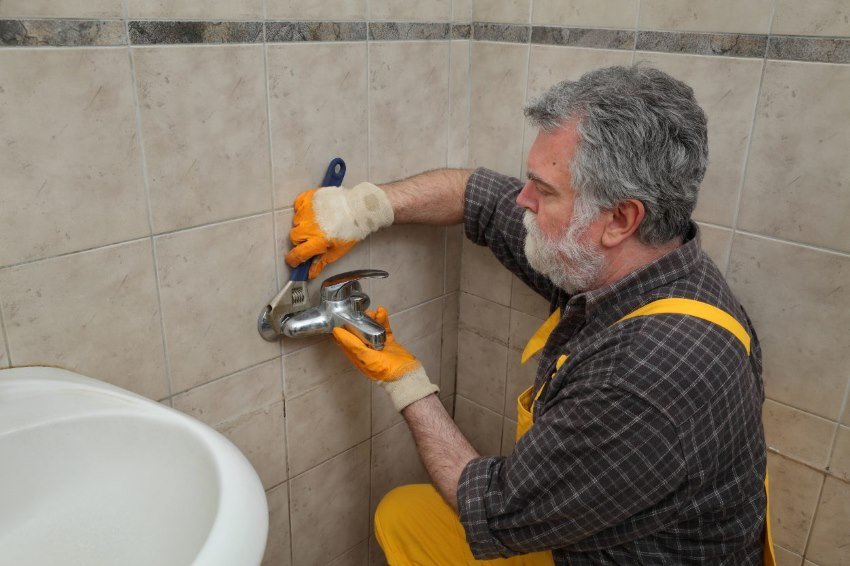
Local Plumbers as Guardians of Public Health
Local plumbers play a critical role in safeguarding public health by ensuring the integrity of water supply systems and maintaining sanitary conditions in residential and commercial properties. This topic explores the indispensable contribution of local plumbers as guardians of public health, emphasizing their responsibilities, expertise, and commitment to upholding health and safety standards in neighborhoods. Here’s an organized approach to delve into this important subject:
1. Introduction to Public Health and Plumbing:
– Provide an overview of the relationship between plumbing systems and public health, highlighting the importance of safe water supply and sanitation in preventing waterborne diseases and promoting well-being.
– Introduce the role of local plumbers as frontline defenders of public health, tasked with maintaining the functionality and cleanliness of plumbing infrastructure.
2. Ensuring Safe Water Supply:
– Discuss the responsibilities of local plumbers in ensuring the safety and quality of drinking water in residential and commercial buildings.
– Explore the role of plumbers in installing and maintaining water filtration systems, backflow prevention devices, and water treatment technologies to protect against contaminants and pollutants.
3. Preventing Plumbing-Related Health Hazards:
– Address common plumbing issues that pose health risks, such as leaks, pipe corrosion, and sewer backups.
– Highlight the proactive measures taken by local plumbers to detect and rectify plumbing problems promptly, mitigating the risk of water damage, mold growth, and indoor air pollution.
4. Educating Homeowners on Health and Hygiene:
– Discuss the educational role of local plumbers in raising awareness about health and hygiene practices among homeowners.
– Explore topics such as proper sanitation, water conservation, and the importance of regular plumbing maintenance to prevent health-related issues.
5. Compliance with Health and Safety Regulations:
– Explain the regulatory frameworks and health codes that govern plumbing practices and standards.
– Highlight the importance of compliance with local, state, and federal regulations to ensure the safety and integrity of plumbing systems.
6. Emergency Response to Health-Related Plumbing Issues:
– Explore the role of local emergency plumber in responding to emergency plumbing situations that pose immediate health risks, such as burst pipes, sewage backups, and gas leaks.
– Discuss the swift action taken by plumbers to contain hazards, protect occupants, and restore sanitary conditions in affected properties.
7. Collaboration with Public Health Authorities:
– Highlight the collaborative efforts between local plumbers and public health authorities to address community-wide plumbing concerns and outbreaks of waterborne illnesses.
– Discuss initiatives such as water quality testing, disease surveillance, and public health campaigns aimed at promoting safe plumbing practices.
8. Investment in Training and Certification:
– Discuss the ongoing training and certification requirements for local plumbers to stay informed about the latest health and safety standards and best practices.
– Highlight the commitment of plumbers to professional development and continuous learning to enhance their skills and knowledge in public health protection.
9. Community Engagement and Advocacy:
– Explore how local plumber Georgetown engage with communities to promote public health awareness and advocate for plumbing-related initiatives.
– Discuss outreach programs, workshops, and informational campaigns organized by plumbers to empower residents with knowledge about maintaining healthy plumbing systems.
10. Future Challenges and Opportunities:
– Address emerging challenges and opportunities in the realm of public health and plumbing, such as aging infrastructure, water scarcity, and emerging contaminants.
– Explore how local plumbers can adapt and innovate to address evolving public health concerns and contribute to building resilient, sustainable communities.
By examining “Local Plumbers as Guardians of Public Health” through these dimensions, this topic underscores the indispensable role of local plumbers in preserving public health and underscores the importance of their expertise, diligence, and dedication to ensuring safe water supply and sanitary conditions in neighborhoods.
Local Plumbers Offering DIY Tips and Maintenance Advice for Common Plumbing Issues
Local plumbers serve as trusted experts in their communities, and part of their role involves empowering homeowners with the knowledge and skills to address common plumbing issues and perform routine maintenance tasks. This topic explores how local plumbers provide valuable DIY tips and maintenance advice to homeowners, fostering a proactive approach to plumbing care and enhancing the overall well-being of households. Here’s a structured approach to delve into this subject:
1. Introduction to Empowering Homeowners:
– Highlight the importance of empowering homeowners with basic plumbing knowledge and skills to handle minor issues and prevent major problems.
– Introduce the concept of local plumbers as educators and advisors, offering valuable guidance to residents in their communities.
2. Identifying Common Plumbing Issues:
– Discuss common plumbing problems that homeowners may encounter, such as dripping faucets, clogged drains, running toilets, and low water pressure. Additionally, include water heater repair as a frequent issue that often requires immediate attention to ensure a continuous supply of hot water.
– Explain the causes and potential consequences of these issues, emphasizing the importance of prompt attention and preventive measures.
3. DIY Tips for Home Plumbing Maintenance:
– Provide practical DIY tips and techniques for homeowners to maintain their plumbing systems and prevent problems from arising.
– Offer guidance on tasks such as regular pipe inspections, cleaning drains with eco-friendly solutions, and testing for leaks using simple methods.
4. Basic Plumbing Tools and Equipment:
– Introduce essential plumbing tools and equipment that homeowners should have on hand for basic repairs and maintenance tasks.
– Discuss the proper use and care of tools such as plungers, pipe wrenches, drain snakes, and pipe sealants.
5. Preventive Maintenance Strategies:
– Educate homeowners on the importance of preventive maintenance to prolong the lifespan of plumbing fixtures and prevent costly repairs.
– Provide tips for scheduling routine maintenance tasks, such as flushing water heaters, inspecting for leaks, and cleaning aerators and showerheads.
6. Water Conservation Tips:
– Highlight the significance of water conservation and provide practical tips for homeowners to reduce water usage and lower utility bills.
– Offer advice on installing low-flow fixtures, fixing leaks promptly, and adopting water-saving habits in daily routines.
7. Responding to Emergencies:
– Prepare homeowners for plumbing emergencies by offering guidance on how to respond quickly and effectively to common issues such as burst pipes or overflowing toilets.
– Provide step-by-step instructions for shutting off water supply valves, containing leaks, and contacting emergency plumbing services when needed.
8. Clear Communication and Accessibility:
– Stress the importance of clear communication between local plumbers and homeowners, ensuring that advice and instructions are easily understood and followed.
– Emphasize the accessibility of plumbers for further assistance and clarification, whether through phone support, email inquiries, or in-person consultations.
9. Building Trust and Confidence:
– Discuss how local plumbers build trust and confidence with homeowners by providing reliable information, honest advice, and quality service.
– Highlight the positive impact of empowering homeowners to take proactive steps in maintaining their plumbing systems and addressing minor issues independently.
10. Community Engagement and Education:
– Explore opportunities for local plumbers to engage with their communities through workshops, seminars, and educational events focused on DIY plumbing tips and maintenance advice.
– Discuss the benefits of fostering a culture of collaboration and mutual support between plumbers and homeowners in promoting home plumbing care and sustainability.
By exploring “Empowering Homeowners” through these dimensions, this topic underscores the proactive role of local plumbers in educating and supporting residents, fostering a sense of ownership and responsibility for maintaining healthy plumbing systems in their homes.
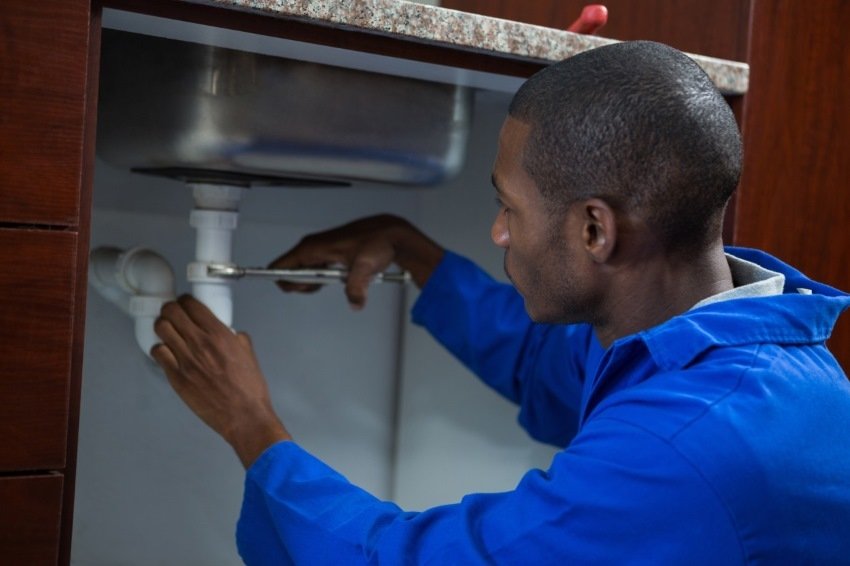
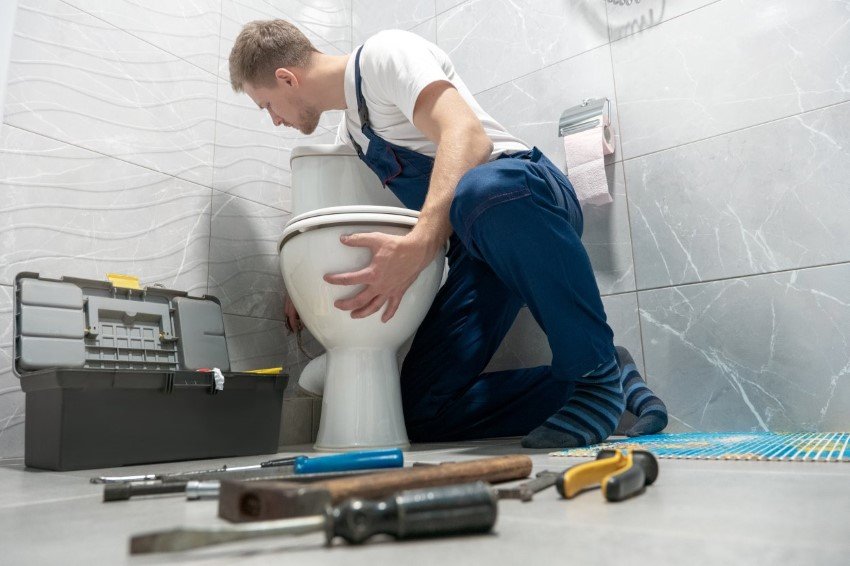
The Evolution of Local Plumbing Businesses: From Family-Owned Shops to Modern Service Providers
Local plumbing businesses have undergone a significant evolution over the years, transitioning from small, family-owned shops to modern, customer-centric service providers. This topic explores the transformation of local plumbing businesses, tracing their journey from humble beginnings to the dynamic enterprises they are today. Here’s a structured approach to delve into this fascinating subject:
1. Introduction to Local Plumbing Businesses:
– Provide an overview of the role of local plumbing businesses in serving their communities and meeting the plumbing needs of residential and commercial clients.
– Introduce the evolution of these businesses, highlighting the factors that have shaped their growth and development over time.
2. Founding and Establishment:
– Discuss the origins of local plumbing businesses as small, family-owned enterprises often founded by skilled tradespeople with a passion for plumbing.
– Explore the early days of these businesses, characterized by a focus on craftsmanship, personalized service, and word-of-mouth referrals within the local community.
3. Growth and Expansion:
– Trace the trajectory of local plumbing businesses as they experienced growth and expanded their operations to meet increasing demand for their services.
– Discuss factors such as population growth, urbanization, and advancements in plumbing technology that contributed to the expansion of these businesses.
4. Diversification of Services:
– Explore how local plumbing businesses diversified their service offerings over time to adapt to changing customer needs and market demands.
– Highlight the expansion into new areas such as heating, cooling, drainage, and water treatment, as well as the adoption of specialized services like trenchless technology and eco-friendly plumbing solutions.
5. Transition to Modern Service Providers:
– Discuss the transition of local plumbing businesses into modern service providers, characterized by a focus on professionalism, efficiency, and customer satisfaction.
– Explore how these businesses embraced technology, streamlined operations, and adopted best practices to enhance service delivery and meet the expectations of today’s consumers.
6. Customer-Centric Approach:
– Highlight the importance of a customer-centric approach in the evolution of local plumbing businesses, emphasizing the value of communication, transparency, and responsiveness.
– Discuss how modern plumbing businesses prioritize customer satisfaction through prompt service, clear pricing, and ongoing support.
7. Adoption of Technology:
– Explore the role of technology in driving the evolution of local plumbing businesses, from the introduction of basic tools and equipment to the integration of advanced software and digital solutions.
– Discuss the use of mobile apps, GPS tracking, scheduling software, and online booking platforms to streamline operations and enhance efficiency.
8. Training and Professional Development:
– Address the investment in training and professional development as a key aspect of the evolution of local plumbing businesses.
– Discuss the importance of ongoing education, certification, and skills development for plumbing technicians to stay abreast of industry trends and best practices.
9. Community Engagement and Brand Building:
– Highlight the significance of community engagement and brand building in the success of modern local plumbing businesses.
– Discuss initiatives such as sponsorship, charity events, and educational workshops aimed at building goodwill and fostering long-term relationships with customers.
10. Future Outlook and Innovation:
– Predict future trends and innovations in the plumbing industry and their potential impact on the evolution of local plumbing businesses.
– Explore emerging technologies, sustainability initiatives, and market trends that will shape the future landscape of local plumbing services.
By exploring “The Evolution of Local Plumbing Businesses” through these dimensions, this topic provides insights into the transformation of small, family-owned shops into modern, customer-centric service providers, driven by innovation, professionalism, and a commitment to excellence.
Reach Us
CMK Plumber Georgetown
Hours of Operation
Mon Open 24 hours
Tue Open 24 hours
Wed Open 24 hours
Thu Open 24 hours
Fri Open 24 hours
Sat Open 24 hours
Sun Open 24 hours
